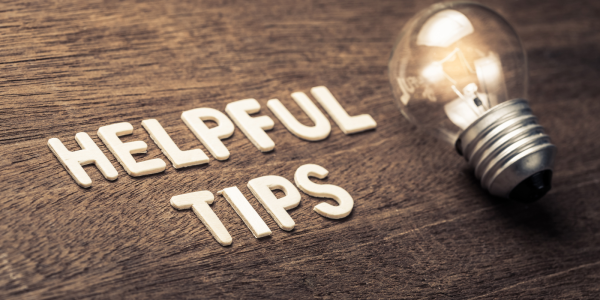LITRG’s top tips to make completing your tax return easier
Now that the days are getting shorter as summer comes to an end, are you beginning to turn your attention to completing your 2022/23 self assessment tax return? If so, this article gives you some top tips to simplify the whole process for you.

Content on this page:
Do some advance planning
Check that you either have a paper tax return form to hand or that you have your Government Gateway log in details so that you can file online. If you need a paper return you should call HMRC to ask them to send you one. Our guide to HMRC’s digital services will be able to help you if you need more information about the Government Gateway, for example If you cannot find your Government Gateway log in details or have never created a Government Gateway account before.
Organise your paperwork
You should try to gather together the documents you will need to complete your tax return before you start the process. This might include your form P60 if you are employed or have pension income, your trading accounts information if you are self-employed or your rental accounts information (including from a letting agent) if you let out a property. See our section ‘What information do I need to complete my tax return’ for more information.
If you need help preparing self-employed accounts there is guidance in our section ‘Working out profits, losses and capital allowances’ . If you need help preparing rental accounts see our section ‘Renting out property’.
Be aware of your filing deadline
For most people completing a paper tax return for the 2022/23 tax year the deadline is 31 October 2023. If you are filing your 2022/23 tax return online then the filing deadline is usually 31 January 2024. However there are a couple of exceptions to these deadlines – see ‘When must I send my tax return to HMRC’ which explains the circumstances where different deadlines might apply.
You should make every effort to submit your tax return on time otherwise you will be charged a late filing penalty from HMRC. If you are unable to complete your tax return on time for a specific reason such as serious illness of a family member, bereavement, mental health issues then you should file the tax return as soon as you can. You may then have grounds to appeal against any penalties on the basis of reasonable excuse.
Make sure your tax return is properly submitted
If you file online using HMRC’s system it is important to make sure you actually submit the tax return to HMRC once you have been through all the steps to complete it. It is easy to miss out this final step and to think HMRC have received your tax return when in fact they have not. You should make sure you complete the ‘submit your return’ section and generate a submission receipt which you can print out and/or save a copy. You should also print out or otherwise save a copy of the tax calculation so you know how much tax you need to pay for the 2022/23 tax year.
If you send a paper tax return to HMRC we recommend you get ‘proof of posting’ from the Post Office when you post the form. There is no charge for this and as it confirms when you posted the form it may be helpful if there is any dispute with HMRC at a later stage, for example if the form goes astray in the post and you have to send another one. If you are also able to take a photocopy of the form or photos of the pages with a smartphone before you send it this might be useful for your own records too.
Provided you send the paper tax return to HMRC by the filing deadline you should receive a tax calculation from HMRC to tell you what tax payment you need to make before the payment deadline of 31 January 2024. If you do not receive this for any reason you should contact HMRC to check with them whether you need to make a tax payment.
If you don’t think you need to do a tax return any longer
If you don’t think you need to continue to complete self assessment tax returns, for example:
-
you were self-employed but you stopped the work in the 2021/22 tax year, or
-
you stopped renting out your property in the 2021/22 tax year, or
-
your gross income from self-employment is fully covered by the trading allowance in the 2022/23 tax year and you have no other taxable income
then you must contact HMRC to tell them. If they agree with you, then your obligation to file a 2022/23 tax return will be cancelled and you will not need to submit a form at all. GOV.UK explains the different ways to notify HMRC that you no longer need to complete a tax return.
It is important that you get the tax return cancelled in these circumstances and do not just decide not to complete it without telling HMRC as otherwise you will probably be charged late filing penalties as HMRC’s computer systems will show the tax return as due but not received.
Getting further help
There is more information in our self assessment section which might be useful. We also have detailed information on the tax system as it affects self employment, employment, property owners, pensioners on our website.
HMRC can also be contacted about self assessment. They have resources including a digital assistant tool and webchat as well as a telephone helpline.
The tax charities TaxAid and Tax Help for Older People may also be able to help if you are on low income and have a query in connection with your tax return which HMRC have not been able to help you to resolve.
